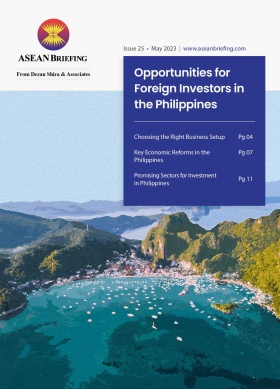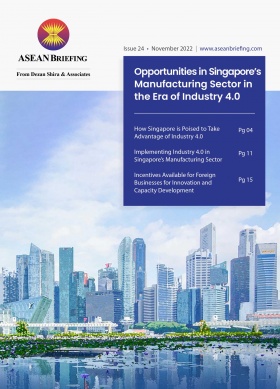A Guide to Singapore’s Labor Law
The Employment Act is the central labor law in Singapore. We discuss the terms and conditions of employment that the Act covers, and how it impacts employers and employees.
The field of human resource management in Singapore has undergone significant advancements in response to the dynamic and competitive market environment, especially from the mid-1990s onwards. National-level policies and strategies have been devised to optimize the utilization of human capital and facilitate substantial transformation. The Singaporean government has consistently advocated for a centralized approach to human resource management, while foreign investment has continued to play a significant role in shaping the landscape.
The Employment Act (EA) is the main labor law in Singapore. The Act regulates employment terms and conditions for all employees under a work contract with an employer. The EA covers the following:
- Employment contracts;
- Minimum days for giving notice of termination of the contract;
- Actions employers are entitled to upon misconduct of employees;
- Salary periods and time of payment;
- Maternity protection and benefits and childcare leave for parents; and
- Public Holiday, leave and sick leave entitlements.
An employee is protected under the EA if they are hired under the following terms:
- Full-time employment;
- Part-time employment;
- Temporary employment; and
- Under a special work contract.
Further, an employee is also protected under the EA if they receive payments:
- Hourly;
- Daily;
- Monthly; or
- Piece rated.
Who does the Employment Act not apply to?
The EA covers every employee who is under a contract of service with an employer, except for the following:
- Domestic workers;
- Seafarers; and
- Government employees or statutory board employees.
Managers and executives are now covered by the EA after amendments were made to the Employment Act in 2019. Previously, they were not covered.
The employment contract
The employer in Singapore is required to issue an employment contract within 14 days after the first day of employment.
The contract should include the following items:
- Details of employment – job titles, main duties and responsibilities, duration of employment, and start date;
- Working hours;
- Salary;
- Leave and medical benefits; and
- Others – probation period, notice period.
Working hours
The contractual working hours cannot exceed 8 hours per day or 44 hours per week. This excludes break time and overtime. If the employee works more than 8 hours per day or 44 hours per week, then they must be compensated with overtime pay, which is 1.5 times the hourly basic rate of pay.
Employees cannot work more than 12 hours per day, inclusive of overtime, unless under specific circumstances such as national security.
Employees covered under the EA are entitled to one rest day per week, without pay. If the employee works on their rest day, they are entitled to more pay. This is as follows:
- If the employee works on their rest day, at the employer’s request, they can earn one day’s salary for up to half of the normal daily working hours. They can earn two days’ salary for more than half of the normal daily working hours, and two days’ salary plus overtime for work that is beyond the normal daily working hours.
- If the employee works on their rest day, but it is at the employee’s request, they can earn half a day’s salary for up to half of the normal daily working hours. They can earn one day’s salary for more than half of the normal daily working hours, and one day’s salary plus overtime for work that is beyond the normal daily working hours.
The regulation on working hours only applies to workmen, generally defined as someone who works in manual labor and does not earn more than S$4,500 per month (US$3,347), and non-workmen who are also covered under the EA and earn no more than S$2,500 (US$1,859) per month.
Salary and wages
The statutory requirement for wages is that they should be paid no more than seven days after the end of the salary period. For example, if the salary period is between January 1 and 31, the salary needs to be paid by February 7.
If the employee is entitled to overtime pay, this must be transferred within 14 days of the salary period.
Public holidays
Employees under the EA are entitled to 11 paid Singapore public holidays per year. If an employee must work on a public holiday, they can receive an extra day’s salary or be granted a day off in lieu.
Sick leave
The employee is entitled to paid sick leave if they have worked for at least three months with the employer, or the employee has tried to inform the employer within 48 hours of their absence. The number of days of paid sick leave and paid hospitalization leave depends on how long the employee has worked in the company.
|
Paid Sick Leave and Paid Hospitalization Leave in Singapore |
||
|
Number of months of completed service |
Paid sick leave (days) |
Paid hospitalization leave (days) |
|
3 months |
5 |
15 |
|
4 months |
8 |
30 |
|
5 months |
11 |
45 |
|
6 months and above |
14 |
60 |
Medical certificates (MC) issued by doctors and dentists registered under the Medical Registration Act, 1997 and the Dental Registration Act, 1999 is now recognized, whereas previously only MCs issued by the government and company-appointed doctors were acknowledged. This provides employees with the convenience to visit doctors closer to home.
However, this policy does not impact the reimbursement of medical consultation fees. Employers are only required to reimburse fees from government doctors or company-approved doctors.
Annual leave
Employees are entitled to paid annual leaves after working with their employer for at least three months.
|
Years of service |
Annual leave (days) |
|
1 |
7 |
|
2 |
8 |
|
3 |
9 |
|
4 |
10 |
|
5 |
11 |
|
6 |
12 |
|
7 |
13 |
|
8 and above |
14 |
Maternity leave
Only Singaporean residents are entitled to paid maternity leave. The length is usually 12 weeks but if the child is a Singaporean citizen, then the leave is 16 weeks.
Further, there are other conditions that must be fulfilled to receive maternity leave. These are:
- The mother must be legally married to the father;
- Employment must have begun at least three months before the birth of the child; and
- The first eight weeks of maternity leave are paid by the employer, and the next eight weeks by the government.
About Us
ASEAN Briefing is produced by Dezan Shira & Associates. The firm assists foreign investors throughout Asia and maintains offices throughout ASEAN, including in Singapore, Hanoi, Ho Chi Minh City, and Da Nang in Vietnam, in addition to Jakarta, in Indonesia. We also have partner firms in Malaysia, the Philippines, and Thailand as well as our practices in China and India. Please contact us at asean@dezshira.com or visit our website at www.dezshira.com.







